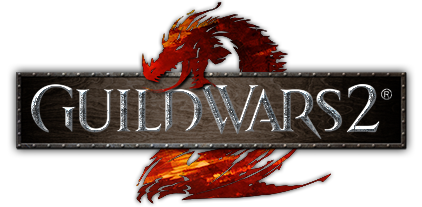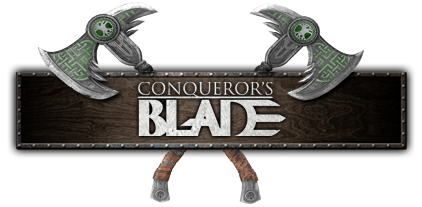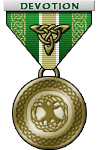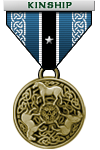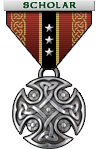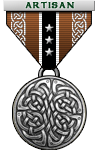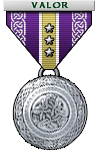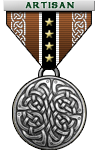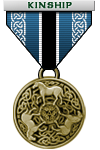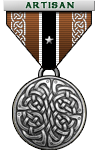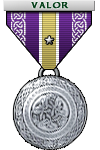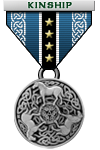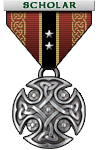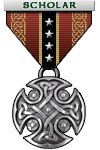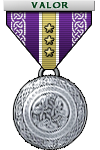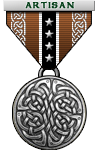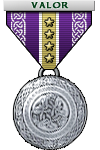Finally read the book last night after being bugged about it *pokes tongue out at Jase* - picked it up at about 10pm, down at 4am.
Most of my thoughts have been previously mentioned by people above. I can relate to most of them. But let me summarise:
OVERALL
I enjoyed the book, more than I thought I probably would. I'm not a fan of war type stories at all - they depress me too much. But I found this presented in a way that was more thought provoking and challenging rather than overtly about war and the terrible costs it inflicts. Because it was pretty much all done from a 3rd person standpoint. Sure, Ender was the one who was being trained and all, but there was no actual fighting of the enemy right in front of you - it was presented as hypothetical battles, virtual strategies. It was a very interesting take on the development of winning tactics. It started off as trial and error with no casualties, but once Ender got to the Command base that was gone, though we didn't know it and neither did he.
That detached feeling - of observing the pieces moving about, of patterns, maneuvers and solving puzzles - without the gritty and dark reality of combat, resonated well with me. It proved to be a perfect vessel to show the development of the story, the desperation obviously present which caused them to turn to children - who are not yet molded by societal pressure into what should and should not be thought and felt, etc - to discover new ways to do things and new ideas to use, which the young are more easily able to adapt to and with. The story took children and turned them into adults well before their age, with the responsibility of the war on their shoulders, but they did it in a way that made use of the fact that they WERE children - using games to teach and eventually as the weapon itself.
ON MORALITY
As for what I would or would not do if this situation were real ... I honestly don't know. The story never once made me think that they were going too far with the kids' training - keeping it all in the context of 'desperate times call for desperate measures' but those measures seemed reasonable. There was no physical abuse of the kids (except from other kids, and that's sadly always there when there are bullies) and even the emotional manipulation seemed controlled and worked well to hone them. So I guess in the context of 'fighting for humanity' I would approve of what they did.
But ... I am not entirely sure they did all they could have done to try and communicate with the Buggers to find out their intentions before taking the fight to their homeworld. As Ender said once in the book, what if they had no plans to attack again? Why chase down an enemy who seems to have no intention of continuing the fight? They withdrew because they realised they were killing an intelligent lifeform. They fought, they lost, they withdrew. Was chasing them down just an act of fear? Of retribution? How much effort had been put into trying to communicate after the Buggers withdrew? With the comments at the end, it would seem that they would have more than welcomed the possibility of interaction, but the chance wasn't given. They understood their mistake and felt, out of guilt, that the humans had the right to retaliate. But how much different could things have been if mercy and restraint were shown instead?
All these things rattle about in my brain, but I am a pacifist at heart I think, and would do anything to avoid conflict if at all possible. But if not even remotely possible, I would hope that I could end things quickly and with minimal suffering. I also hope that I never have to make that choice.
» Edited on: 2013-05-30 18:07:18













